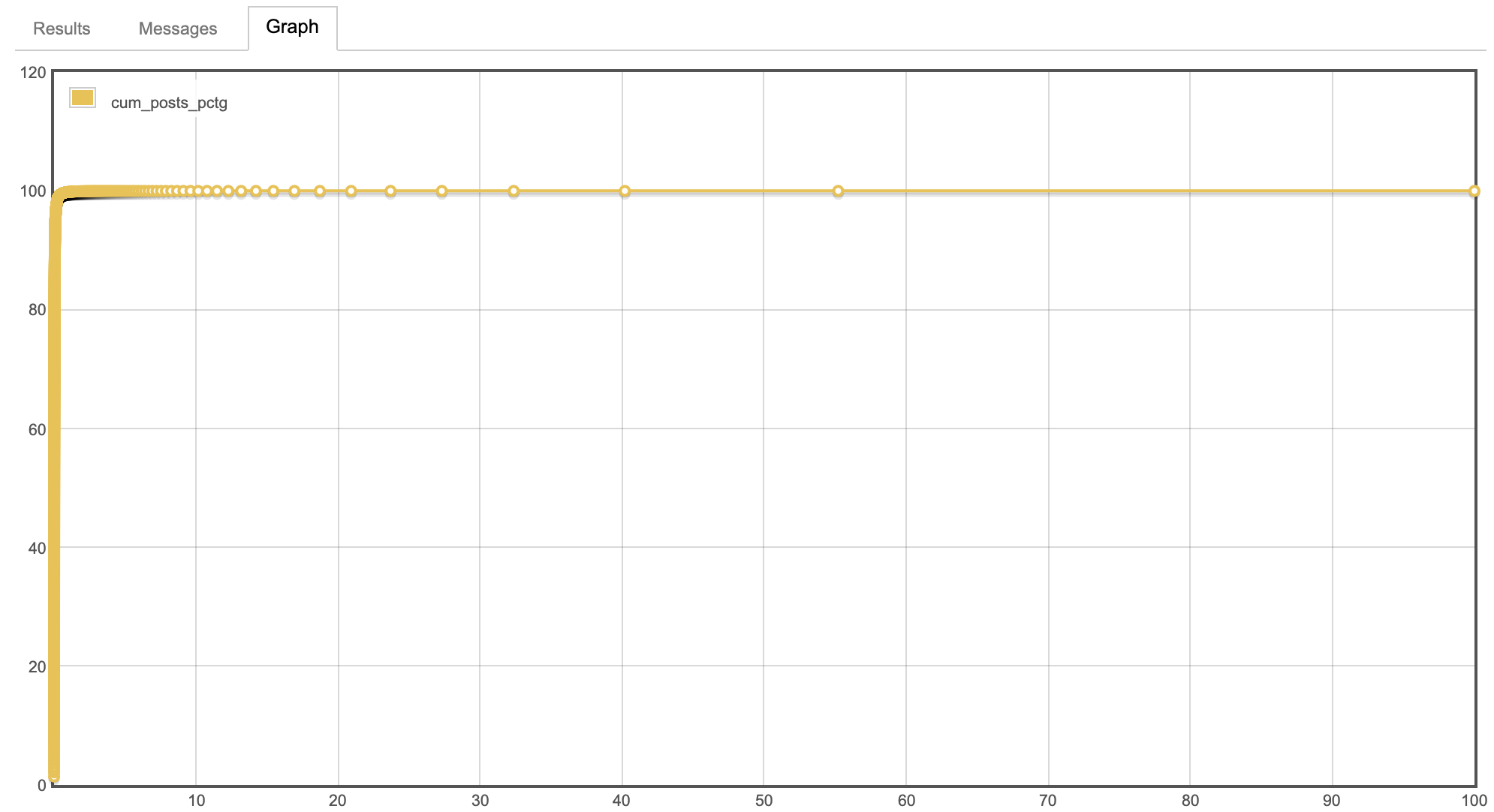I ask this question as SO contribution is largely a free decision: you can still keep using SO without making any contributions in return.
I'd expect Pareto statistics to apply in this case - it may even be heavily skewed, e.g. 95% of user contributions coming from 5% or less of contributing members.
But I'm just guessing. What's the real low-down here ?
